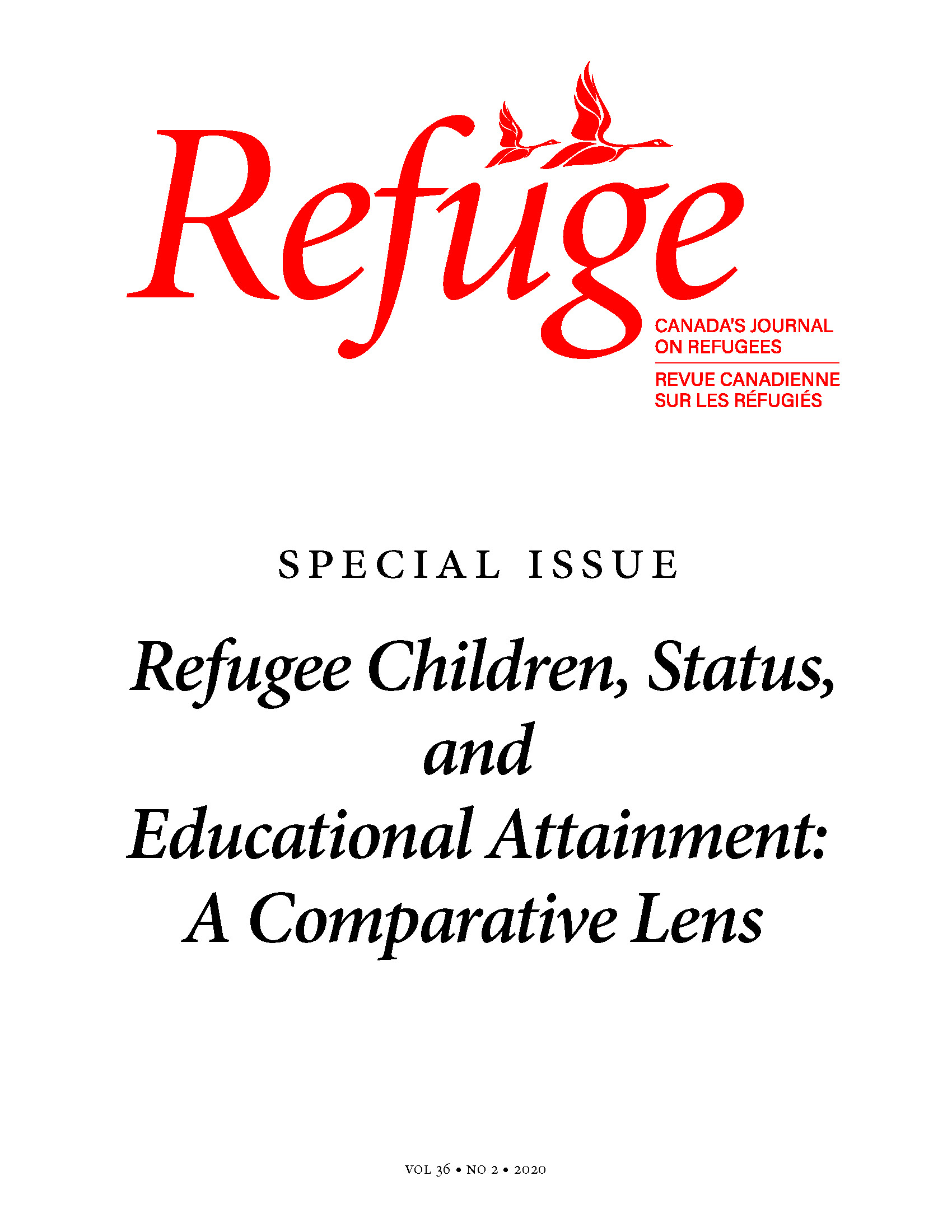Increasing Inclusion or Furthering Fragmentation? How the Global Strategy to Include Refugees in National Education Systems Has Been Implemented in Lebanon
DOI:
https://doi.org/10.25071/1920-7336.40713Keywords:
Lebanon, Syrian refugees, Global Education Strategy, host state, education system, policy transfer, UNHCR, education policyAbstract
The UNHCR strategy to include refugee students in host state education systems is intended to promote refugees’ access to quality education. However, numbers of out-of-school refugees far exceed the global average. To understand these persistent barriers, we examine how Lebanese teachers and school principals understand and enact inclusion for school-age Syrian refugees. We find that inclusion has been pursued in ways that reproduce education inequities in Lebanon. Our findings underscore the importance of accounting for the internal complexities that shape the implementation and appropriation of policies within refugee host states and the ways in which these complexities interact with aid structures.
Metrics
Downloads
Published
How to Cite
Issue
Section
License
Copyright (c) 2020 Samira Chatila, Jo Kelcey

This work is licensed under a Creative Commons Attribution-NonCommercial 4.0 International License.
Refuge authors retain the copyright over their work, and license it to the general public under the Creative Commons Attribution-Non Commercial License International (CC BY-NC 4.0). This license allows for non-commercial use, reproduction and adaption of the material in any medium or format, with proper attribution. For general information on Creative Commons licences, visit the Creative Commons site. For the CC BY-NC 4.0 license, review the human readable summary.







